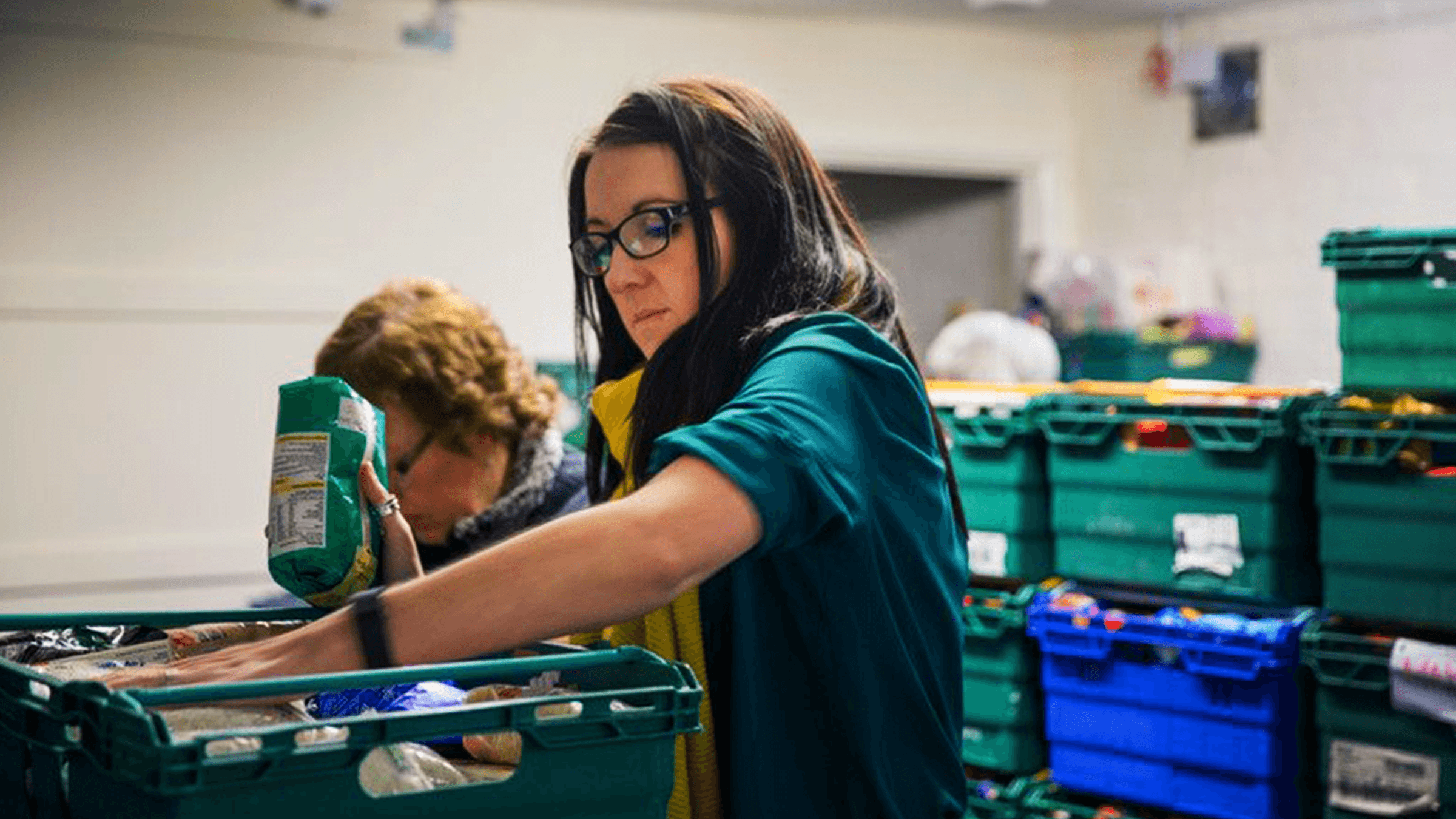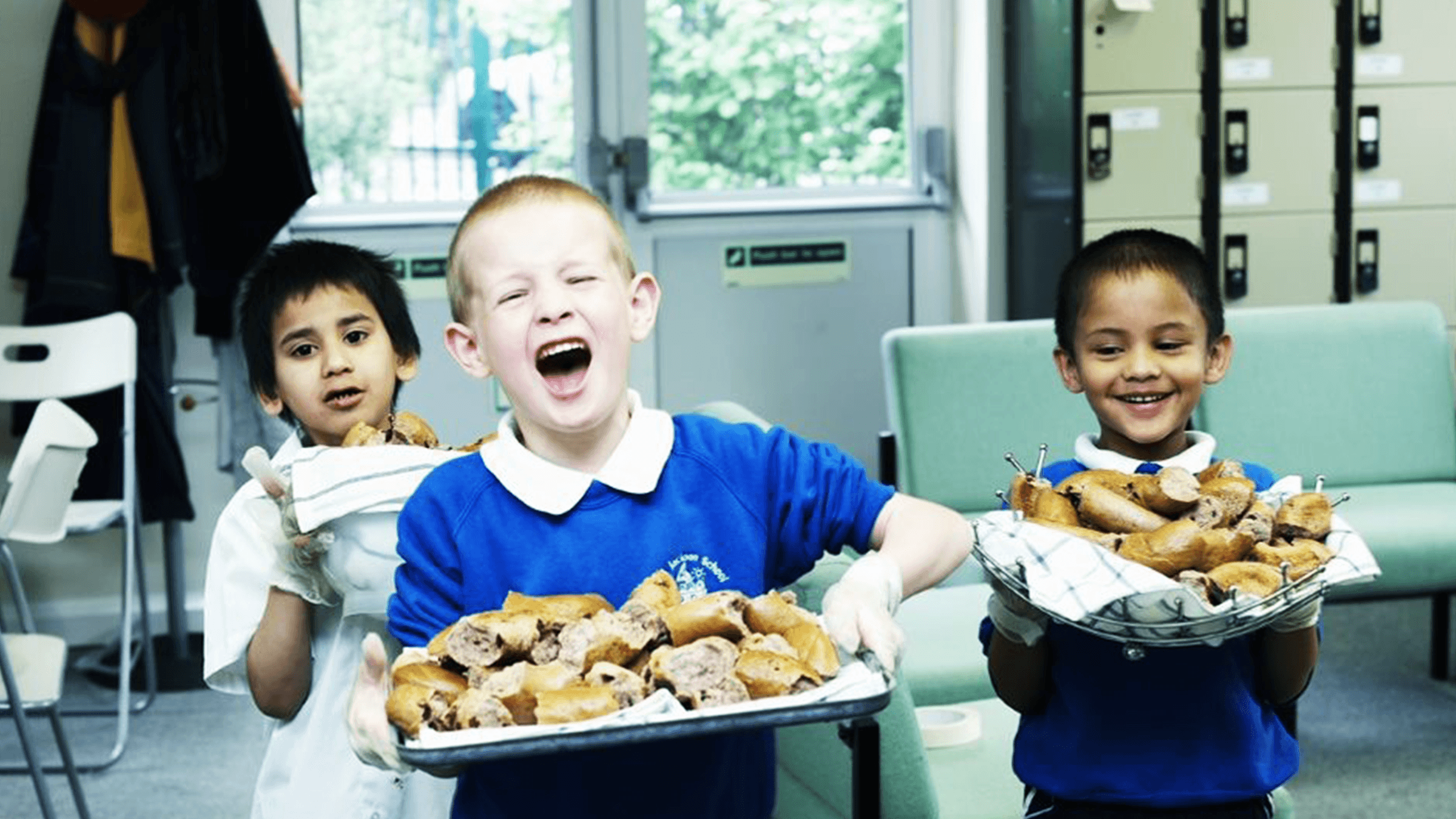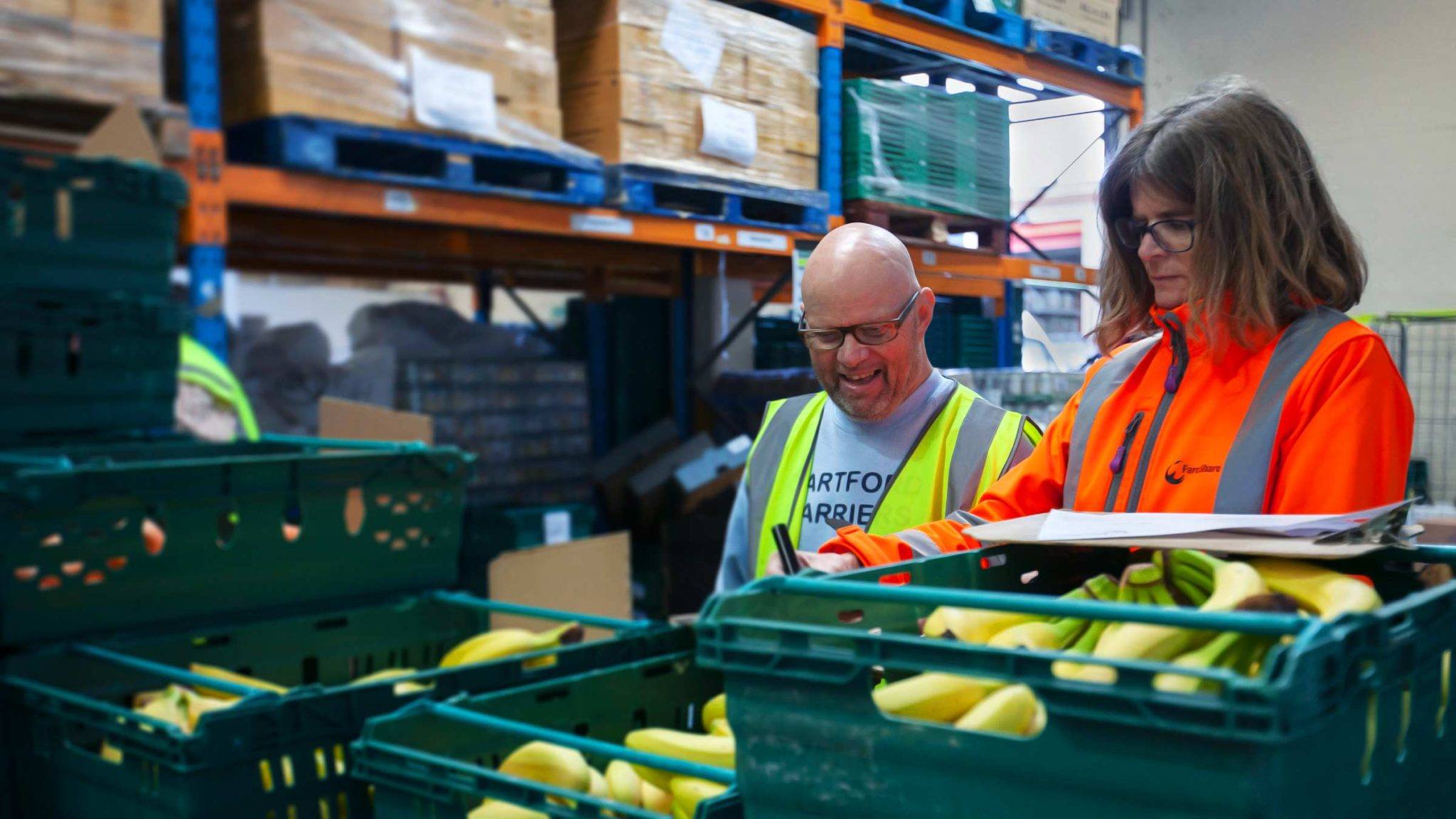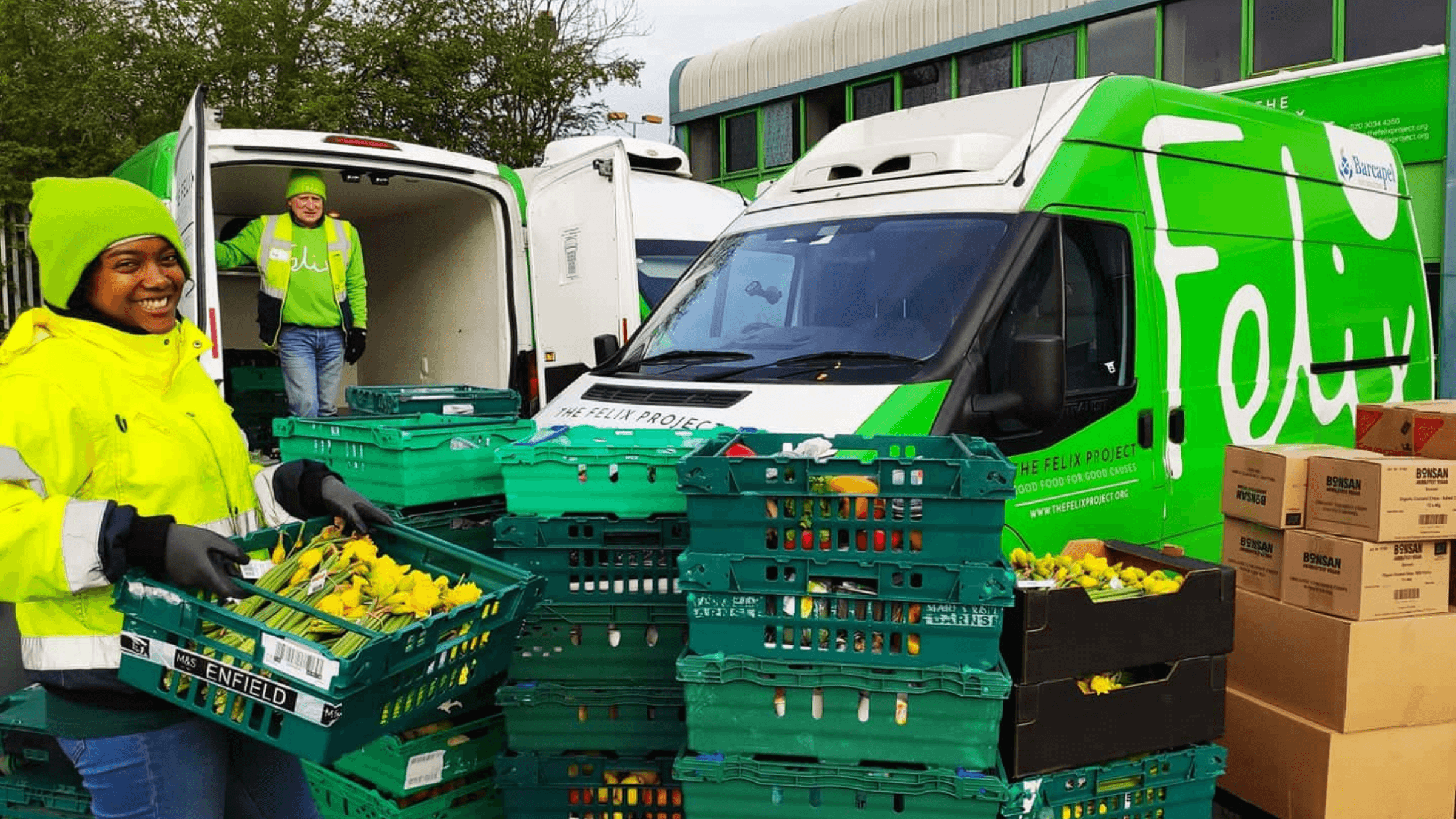One of the perks of my job is meeting exceptional individuals who are driving real and lasting change in society. In 2020, in part thanks to our Role Models in Consumer Goods and Grocery report, I had the privilege of getting to know leaders from some of the UK’s most vital organisations in fighting poverty and tackling food waste. These charities – FareShare, The Trussell Trust, Magic Breakfast and The Felix Project to name a few – have been at the very forefront of the battle against inequality and poverty during Covid-19.
It is a battle that, devastatingly, is getting more challenging by the day. Just before Christmas, Unicef launched a domestic emergency response for the first time in its more than 70-year history. The UN agency, which is normally responsible for providing global humanitarian aid, has said that Covid-19 is the most urgent crisis affecting children since the Second World War. In May, a YouGov poll found that 2.4 million children (17%) were living in ‘food insecure’ households, and by October, a further 900,000 had been registered for free school meals.

Against this distressing backdrop, it has been humbling and inspiring to see charities in the food sector rise to the challenge, and ramp up operations to keep the nation fed during times of crisis. As we move into 2021, and recover from a holiday period that can often be over-indulgent, it feels an appropriate time to reflect on the exceptional work being done by these organisations.
FareShare, for example, has provided 16 million meals to the UK’s most vulnerable people since the outset of Covid-19. The charity exists to tackle two of society’s biggest issues: food poverty and food waste. In response to a threefold increase in demand for food at the peak of the crisis, the Department for Environment, Food & Rural Affairs (Defra) gave £10.5m of emergency funding to FareShare, enabling the organisation to significantly step up its operations and purchase non-perishable food suitable for food parcels – such as tins, pasta and rice – at cost price from retailers.
The Trussell Trust, whose aim is to eradicate the need for food banks in the UK, is also playing a central role. In the first six months of the pandemic, for example, the charity provided 2,600 food parcels for children every single day, a 47% increase from the same period in 2019. Samantha Staple, COO at the Trussell Trust, commented: “The resilience of food banks is nothing short of outstanding, and I know that wherever possible, volunteers will be working tirelessly to continue providing support to people unable to afford the essentials. It has been extraordinary to witness how almost our entire network continued to serve their local community through the first two lockdowns. We expect this innovative way of working to continue during this lockdown.” Beyond front-line work, the Trussell Trust has launched a new #HungerFreeFuture campaign, designed to reach new audiences and develop their understanding of why food banks are needed.
Similar examples can be found right across the food sector. Magic Breakfast, which provides morning meals for children who might otherwise arrive at school hungry, is now reaching 35% more pupils per school. The charity ended 2020 by offering breakfast packs to all its partner schools for children to eat over the Christmas holidays. Over 37,900 packs containing a fortnight of “Magic Breakfasts” were delivered to children this Christmas to help take the pressure off families struggling financially during this time of crisis. As we begin a new year, Magic Breakfast has doubled the number of schools it is working with and tripled the number of children it is reaching – to around 167,000 – by partnering with a further 500 schools whose funding from the government’s National School Breakfast Programme has just ended.
The Felix Project, which collects unsold food that would otherwise go to waste and distributes it to organisations on the front-line of fighting food poverty, such as charities, shelters, refuge centres, schools and housing associations, has also tripled the amount of food it is supplying to London’s most vulnerable communities.

None of this would be possible without the corporate collaboration that exists in the food and grocery sectors today. In an industry usually fraught with competition, it has been humbling to see retailers, manufacturers and global brands put aside their rivalries to jointly support food charities. Asda and Sainsbury’s, for example, worked together alongside XPO Logistics to allow FareShare to reach 596,000 vulnerable families and individuals at risk of hunger in just four months. In the consumer goods space, Danone UK & Ireland, Coca-Cola European Partners and Heineken have come together to establish the Neighbourly Community Fund to provide grants to good causes offering immediate aid to people in crisis. The Fund has distributed £1.2m to over 3,000 local charities and community groups. More recently, food and drink suppliers more than doubled the amount of food given to FareShare over Christmas – with the charity saying it has seen a 125% increase in food volumes.
“In an industry usually fraught with competition, it has been humbling to see retailers, manufacturers and global brands put aside their rivalries to jointly support food charities.”
These inspiring organisations are powered by armies of volunteers who generously give up their time to help others. But they are also guided from the top, by executives and non-executives who combine passion and perseverance with relevant experience and strategic thinking. Meeting Emma Revie (CEO at The Trussell Trust), Gavin Darby (Chair at The Felix Project), Carmel McConnell (Founder at Magic Breakfast) and Lindsay Boswell (CEO at FareShare) last year was a reminder of the impact that a strong leader can have on an organisation.
As we move into the new year, charities may be looking to reevaluate their leadership and individuals might be thinking of adding a charity trusteeship to their portfolio of positions. But what makes a good charity trustee or chair? The roles incorporate a number of responsibilities, with an emphasis on keeping organisations focused on their purpose, raising their profiles and ensuring good corporate governance. Fundraising is also a key priority. In the middle of last year, the charity sector was forecasting a £12.4bn loss of income due to the pandemic, so raising funds must be a critical focus for trustee boards.

It is also the job of a trustee or chair to think more broadly about the organisation and to consider ways it can adapt with or respond to current trends, or use technology to boost productivity or impact. A trustee should bring a mix of commercial skill and relevant experience to the table, which will enable them to deliver strategic growth and provide advice on ways to face potential challenges. Just one day a month from a good trustee – who is empathetic, engaged and strategic – can bring immeasurable value to an organisation, and shape its future in a meaningful way.
“A trustee should bring a mix of commercial skill and relevant experience to the table, which will enable them to deliver strategic growth and provide advice on ways to face potential challenges.”
This Christmas certainly felt different to others, and 2021 has got off to a turbulent start (to say the least!). But despite the disruption, we shouldn’t lose sight of what really matters. At this critical time, I’m sure we are all thinking of ways to contribute and play our part in fighting inequality. If you are considering a trusteeship, or are a charity looking to refresh its board, then I’d love to hear from you about what you think makes a good trustee or chair.
Huw.llewellynwaters@thembsgroup.co.uk | @TheMBSGroup








